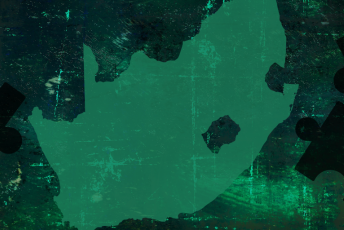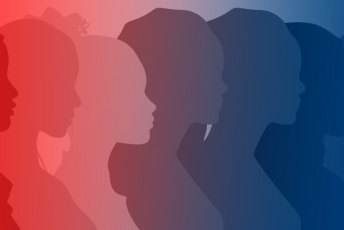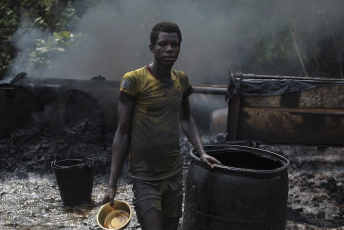Tunisia has achieved significant advances in its efforts against human trafficking since 2016. Laws have been passed, anti-trafficking institutions created, and growing numbers of victims identified and rescued. But to mitigate the risk of the trafficking of Tunisians abroad and of foreigners into the country, the government must redouble its efforts to fully implement its anti-human trafficking legislation.
Tunisia has long been both an origin and destination country for human trafficking. It also faces the challenge of (often) poor and marginalised Tunisians forced into servitude in the country. While successive governments from the 1950s to the 2000s ratified international treaties designed to combat trafficking, implementation of those instruments was often weak.
The law against human trafficking passed by Tunisia in 2016 sought to address the implementation gap. Central to this was the creation of the National Committee against Trafficking in Persons (NCTIP). It is tasked with working on a national strategy to prevent human trafficking and establish coordinated mechanisms to identify victims, care for and protect them, and prosecute offenders.
Since its creation the NCTIP has been dynamic in achieving its mandate. It has coordinated with the justice and interior ministries to train law enforcement and judicial actors on trafficking victim identification, prosecutorial tools, and organised crime investigative techniques.
It has also engaged other governmental institutions like the ministries of health, and women, family and children affairs, to develop protection programmes for minors and healthcare for victims. It has developed strong partnerships with civil society organisations to create clear channels for victims of trafficking.
Efforts by the NCTIP and other government agencies have led to a sharp upturn in trafficking investigations. Between 2014 and 2018, the number of investigations increased by 1 296%, and the number of victims identified rose from 59 to 780. In contrast to previous years, a significant number of those were foreigners, with Ivorians alone accounting for 40.5% of victims.
The NCTIP has also sought to publicise the issue of human trafficking in Tunisia. The commission’s president Raoudha Laabidi has issued a number of public statements, including on sexual abuse and trafficking faced by Tunisian woman workers in Saudi Arabia, and on labour exploitation and sexual abuse of Tunisian youth at a religious school in the country’s centre.
The low level of general knowledge around trafficking in Tunisia means that such awareness raising is doubly important, enabling potential victims to recognise risk factors and allowing citizens to more easily spot and respond to instances of trafficking in the country.
However while the NCTIP’s achievements should be lauded, more action is needed. Even as the number of cases under investigation has risen, the number of successful prosecutions has lagged.
Between 2018 and 2019, 31 cases brought to trial in 20 tribunals were analysed by Judge Samar Jaidi. Only one conviction was recorded (though a number of cases continue). This is not an aberration, with only a single conviction that was reported the year before.
According to the same analysis, in seven of these cases, the offence of human trafficking was not specified, while the rest of the cases were specifically opened for economic exploitation (nine cases) or sexual exploitation (two cases). Only four cases received a decision to open criminal prosecutions, while the remaining cases are still under investigation.
In many instances investigation and prosecution are slowed or stalled due to a lack of knowledge on the 2016 law. This has also impeded efforts to punish and deter trafficking. Judges unfamiliar with the law have tended to rule on cases based on general criminal law, which can result in more lenient decisions for human trafficking offences. While the 2016 law lays out robust sanctions, ranging from 10 to 15 years’ imprisonment, the only trafficker convicted in the past year received a four-month sentence.
Full implementation of the law requires a judiciary more informed on and comfortable with the new legislation. The NCTIP has started efforts for this, co-organising with civil society organisations training workshops on the law for judges and legal practitioners, along with law enforcement personnel.
However current efforts are insufficient. Judicial and police responses to trafficking are still hindered by a lack of awareness about the trafficking law, the legal and prosecutorial mechanisms it offers, and when it should take precedence over general criminal law.
The need to address these knowledge gaps is especially important now in Tunisia, as it appears the risk of human trafficking through the country and to the country may be rising. Growing numbers of foreign irregular migrants have arrived in the country in recent years. Their lack of official clearance to stay has made them vulnerable to forced labour and trafficking in the country – a factor reflected in the high number of Ivorian victims recorded in recent years.
Tunisia is also increasingly a transit country for irregular migrants, perceived to be a safer and surer means of reaching Europe than through Libya. While most transit migrants arrive in Tunisia and depart without falling victim to traffickers, exploitation is rising.
Upon arrival in Tunisia some foreign migrants have been forced to work in the agricultural, construction and domestic sectors by Tunisian or West African traffickers, while others experience sexual abuse. Without robust efforts to curtail trafficking, it will probably continue to rise as more and more migrants seek to settle in Tunisia or to move through it on their way to Europe.
The NCTIP has the tools and the drive to deal with the increased risk of trafficking. However, to address the challenge, implementation of the 2016 law should be expanded. There should be a particular focus on the technical education of judicial and law enforcement personnel, as well as raising awareness among the public.
The past three years demonstrate that crafting new legislation is the easiest part of reform. The hardest is to ensure that legal reforms, and the tools that accompany them, are understood, internalised and implemented by judicial and law enforcement actors. Tunisia has made significant progress in its efforts to combat human trafficking since 2016, but more needs to be done.
Rim Dhaouadi, Researcher – North Africa, ISS







